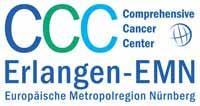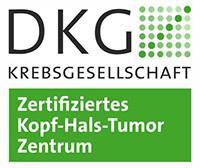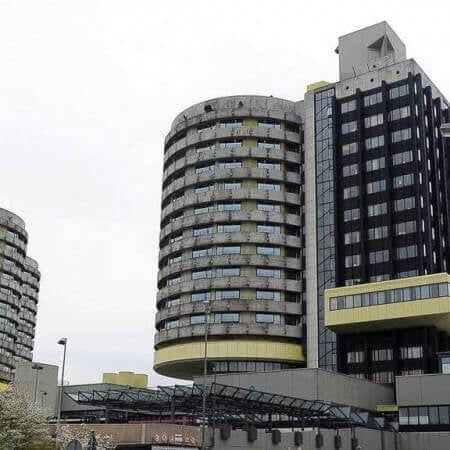Salivary gland cancer is a relatively rare pathology, with most cases diagnosed in the parotid salivary glands. The incidence of salivary gland cancer is about 1% of all malignant pathologies and about 3% of head and neck tumors. Every year 1 person per 100,000 population is diagnosed with salivary gland cancer. Overall, about 72% of people diagnosed with salivary gland cancer survive the 5-year period. The percentages include people that underwent treatment but had different histologic characteristics of the tumor. Thus, it is vital to know how salivary gland cancer is treated.
Content
- About parotid glands and their functions
- The clinical picture of parotid cancer
- The malignant transformation of benign neoplasms
- The course of the disease in different patients
- Treatment of parotid cancer
- Alternative treatment methods
- Rehabilitation after treatment
- The cost of treatment in Europe
- Why choose parotid gland cancer treatment in Europe?
About parotid glands and their functions
Although the parotid glands are the largest salivary glands, they produce only 25% of the total salivary fluid volume. The parotid glands mainly consist of serous cells, making their secretion a serous secretory product. The parotid glands also produce salivary alpha-amylase, which serves to break down starch during mastication. These are the main glands that secrete this enzyme. Alpha-amylase is also thought to prevent the accumulation of bacteria in the mouth.
The parotid salivary glands are involved in the following processes:
- Saliva production
- Moisturizing the mouth mucosa
- Protection against the spread of harmful bacteria
- Breakdown of complex carbohydrates
- Promoting protein metabolism (the glands produce the hormone parathyrin)
- Improving the taste of food
- Production of up to 2 liters of fluid per day
- Increasing the body's resistance to poisons, environmental pollution, parasites
The clinical picture of parotid cancer
Salivary gland tumors differ in their histological structure. The patient can first notice the presence of benign and malignant tumors when they reach a size of about 0.5 cm.
Benign salivary tumors may not cause any symptoms for a long time as they grow slowly. Sometimes they cause almost no symptoms, except for cosmetic defects. Growing over the years, these tumors can reach considerable size, often up to 10 and sometimes 20 cm. Salivary gland tumors may become immobile and cause pain due to the compression of the facial nerve fibers.
It is challenging to identify salivary gland tumors, and therefore they are often detected accidentally. The exact diagnosis for people with parotid gland cancer can be made only after a histological study of the tumor tissue.
The density of benign tumors depends on their histological structure. In most cases, they are elastic. Sometimes it is possible to detect fluctuation inside the tumor mass. Rarely these neoplasms are dense and are almost never soft. It may be difficult to distinguish them from cysts or lipomas.
The most typical clinical manifestations include:
- Visible or palpable lump near the jaw, inside the neck or mouth
- Persistent pain in this region
- Regional face numbness
- One-sided face muscle weakness
- Trouble eating solid food, opening the mouth widely
- Difficulty swallowing
The malignant transformation of benign neoplasms
When cells are healthy, they grow and divide regularly. This process is controlled by DNA – the genetic material that contains specific instructions for each process in the body. When the DNA is damaged, there are abnormal changes in these processes. One possible consequence is that cells divide uncontrollably and eventually form a mass of cancer cells.
When tumors exist for a long time, they may transform into a malignant neoplasm. This transformation is not uncommon and can be detected in about 25% of cases. The main symptom of tumor transformation from benign to malignant form is its rapid and uneven growth.
Due to the infiltrative growth and involvement of the facial nerve endings, pain arises. The most significant evidence of benign tumor transformation into a malignant one is the development of metastases in the regional lymph nodes. This indicates that cancer has spread beyond the initial localization.
Malignant tumors of the parotid gland look like a solid nodule located on the surface or inside the salivary gland. Such neoplasms grow quite rapidly and have no precise boundaries. The skin above the tumor is also rapidly involved in the process, so a neoplasm becomes immobile. With the formation of the tumor, severe pain arises.
Gradually, the pain extends to the ear, parietal area, and tongue. The tumor quickly affects the surrounding tissues, involving the masticatory muscles. In advanced forms, it spreads into the temporal region.
Parotid gland cancer early spreads to the lymphatic nodes. Metastases are detected in the form of a chain of solid lymph nodes in the head and neck region. The metastases are initially mobile, but they can grow quite rapidly and fuse. In these cases, the condition aggravates, and the pain becomes more severe.
Malignant tumors can develop against the background of the following conditions:
- Chronic inflammation of the parotid gland
- Sialadenitis
- Mikulich disease
- Skin carcinoma
- Branchiogenic tumors
- Osteomyelitis of the mandible
- Chronic lymphadenitis
The course of the disease in different patients
Salivary gland cancer occurs in children and among the adult population. The incidence is up to 1% of all cancer cases. The parotid gland is the most commonly affected one. The peculiarities of parotid gland cancer in adolescence are as follows:
- Children are more often diagnosed with tumors of epithelial origin
- Cancer grows slowly and metastasizes late, which is connected with a relatively favorable prognosis
- Rare recurrence is noted after combined treatment
- Congenital neoplasms are common in young children
- Children rarely have neurological symptoms
The leading method of treatment for salivary gland cancer in children is surgery. Complete salivary gland resection or its subtotal removal is performed.
The disease is usually a diagnostic finding in pregnant women because there is no relationship between the two processes. Treatment tactics are determined by a team of healthcare professionals, including a gynecologist.
Elderly patients are the risk group for salivary gland pathology. The volume of treatment depends on age, general health condition and concomitant pathological processes.
Treatment of parotid cancer
Salivary gland cancer therapy includes a combination of surgery, radiotherapy and administration of chemotherapy drugs. Considering the stage of the process, a comprehensive therapeutic regimen is prescribed. A team of healthcare professionals develops the treatment plan. The specialists ' decision is based on the approved therapeutic protocols, but if the clinical case falls outside the scope. A surgeon, radiation therapist, chemotherapist, anesthesiologist, and other healthcare providers participate in it.
Treatment of parotid cancer requires the highest qualifications of an oncologist. The primary treatment method is surgery if a neoplasm is benign. If the tumor is malignant, it is better to start with preoperative and end with postoperative radiation therapy. This combined method gives better clinical results.
In most cases, complete removal of the salivary gland with lymph nodes is indicated. Still, there are peculiarities in the surgical treatment of all salivary glands.
The proximity of the facial nerve complicates surgery in the parotid region. The incision is made in the skin in front of the ear and can go all the way down to the neck. Most parotid gland tumors are located in the outer part of the organ called the superficial lobe. They can be treated by removing this area, in which case surgery is called a partial parotidectomy. The facial nerve remains intact in this case. However, if the tumor has spread beyond the gland, the gland must be removed. If cancer has grown into the facial nerve, the nerve is subjected to transection.
It is often necessary to remove the lymph nodes in the neck to prevent a recurrence. Lymph nodes dissection is performed when the tumor is large and metastases to the regional lymph nodes are detected.
Radiation therapy for parotid gland cancer is not an independent treatment method because it is impossible to destroy the neoplasm completely. As a complementary method, radiation therapy is of great importance.
Radiation therapy can be performed both before and after surgery. Its main goal is to reduce the neoplasm in size, suppress its metastases, and increase the mobility of the tumor. Radiation therapy after surgery is carried out to destroy the remaining malignant cells, which can lead to a recurrence.
In addition to surgery and irradiation, chemotherapy is performed, especially when it comes to inoperable tumors.
The results of treating benign neoplasms are favorable. However, there is a risk of relapse after removing these masses, especially with mixed tumors.
Alternative treatment methods
Modern radiotherapy techniques for salivary gland tumors are used as alternatives to conventional radiotherapy, reducing recurrence rates and increasing survival. For example, hyperfractionated radiotherapy as a treatment method for parotid gland cancer allows giving a double daily dose of radiation, reducing the overall treatment duration.
Three-dimensional radiotherapy is another method that can accompany treatment. It uses imaging techniques to precisely affect the tumor. Several beams irradiate the tumor from many sides simultaneously. Each beam is weak and does not damage normal tissue, but a high radiation dose is detected in the area where they converge.
Intensity-modulated radiation therapy is a more advanced technique. A machine with a radiation source moves around the patient during the procedure, irradiating the tumor from all sides. Besides, the irradiation dose and intensity can be adjusted according to the sensitivity of normal tissue. This allows the tumor to be irradiated with a higher dose without affecting healthy organs.
Rehabilitation after treatment
Most patients undergo surgical treatment, so they need to recover after it. During the first postoperative days, pain must be relieved with pain medications. If there has been damage to the facial nerve after surgery, there may be a complete loss of the facial muscles control on the side of the intervention. Such injuries require reconstructive interventions on the facial nerve.
If there was an injury to the separate nerve fibers, then the symptoms may be transient, and the work of the facial muscles will gradually come back to normal. Damage to other nerves of the face and neck region is associated with abnormal tongue movement, speech, and swallowing. After lymph node removal, innervation of the ear, lower lip, and even the hand on the side of the surgery may be impaired.
Radiation therapy can cause skin burns, difficulty swallowing, nausea, vomiting, and fatigue. When treatment is completed, the symptoms gradually go away.
If chemotherapy is used, its side effects may worsen the general condition, cause hair loss, and suppress the bone marrow function, accompanied by poor hematopoiesis. Hematopoiesis stimulants, iron supplements, and B vitamins are prescribed for quicker recovery between chemotherapy cycles. In some cases, transfusions of blood or plasma may be needed.
Full health restoration occurs in several weeks or months, but some neurological functions may not recover if treatment has been performed incorrectly.
The precautions should be taken to avoid the recurrence of salivary gland cancer. Recommendations include quitting smoking, avoiding exposure to radiation, and inspecting the mouth and neck for atypical lumps and masses. During an appointment with the dentist or laryngologist, it is advisable to ask for an examination of the glands to detect an abnormality.
If a lump is found, you should not ignore it, even if there is no pain. It is necessary to see a doctor immediately.
The cost of treatment in Europe
Prices for parotid gland cancer treatment in Europe are lower than in comparable hospitals in the United States, and the methods have the same efficacy. You can get an approximate price of medical tests and procedures, but the exact cost of treatment in Europe is determined after the examination when the doctor will elaborate on a treatment regimen.
The final cost of salivary gland cancer treatment in European hospitals depends on many factors, including the number of consultations with oncologists and related specialists, the list of prescribed diagnostic procedures, the stage of disease, individual factors (how the body will react to the treatment, whether correction of the prescribed recommendations will be required, how long it will take to recover, etc).
- The average price for diagnostic tests in European hospitals is about 550 EUR
- The cost of treatment with surgery for parotid gland cancer is 4,401 EUR
The average price of rehabilitation after parotid gland cancer treatment is 820 EUR per day, the minimum price is 630 per day, and the maximum price is 1,083 EUR per day. To receive the information about the preliminary cost of treatment in Europe in your clinical case, leave a request on the Booking Health website.
Why choose parotid gland cancer treatment in Europe?
First of all, many private and State-owned European hospitals, multidisciplinary and specialized, are internationally certified and provide medical care at the highest level. There is a well-established opinion in medicine that European hospitals handle the most complicated disease and perform complex surgeries.
If you or your relative has a parotid tumor, Booking Health will organize treatment in European hospitals, even during the COVID-19 lockdown. Direct contacts with the leading hospitals allow Booking Health to organize urgent trips for the treatment of cancer. Booking Health selects the most suitable option for each patient, providing people with information about healthcare facilities, physicians and treatment programs.
If you would like to know more about parotid gland cancer treatment in Europe, don't hesitate to contact Booking Health or leave a request online. Specialists of the company will carefully guide you through all stages of receiving therapy abroad. Visa issuing, booking flight, accommodation, translation of medical reports, interpreter, insurance against complications – all of these and much more are on Booking Health.
Authors:
The article was edited by medical experts, board-certified doctors Dr. Nadezhda Ivanisova and Dr. Sergey Pashchenko. For the treatment of the conditions referred to in the article, you must consult a doctor; the information in the article is not intended for self-medication!
Our editorial policy, which details our commitment to accuracy and transparency, is available here. Click this link to review our policies.
Sources:
National Library of Medicine
Johns Hopkins Medicine
Healthline




















